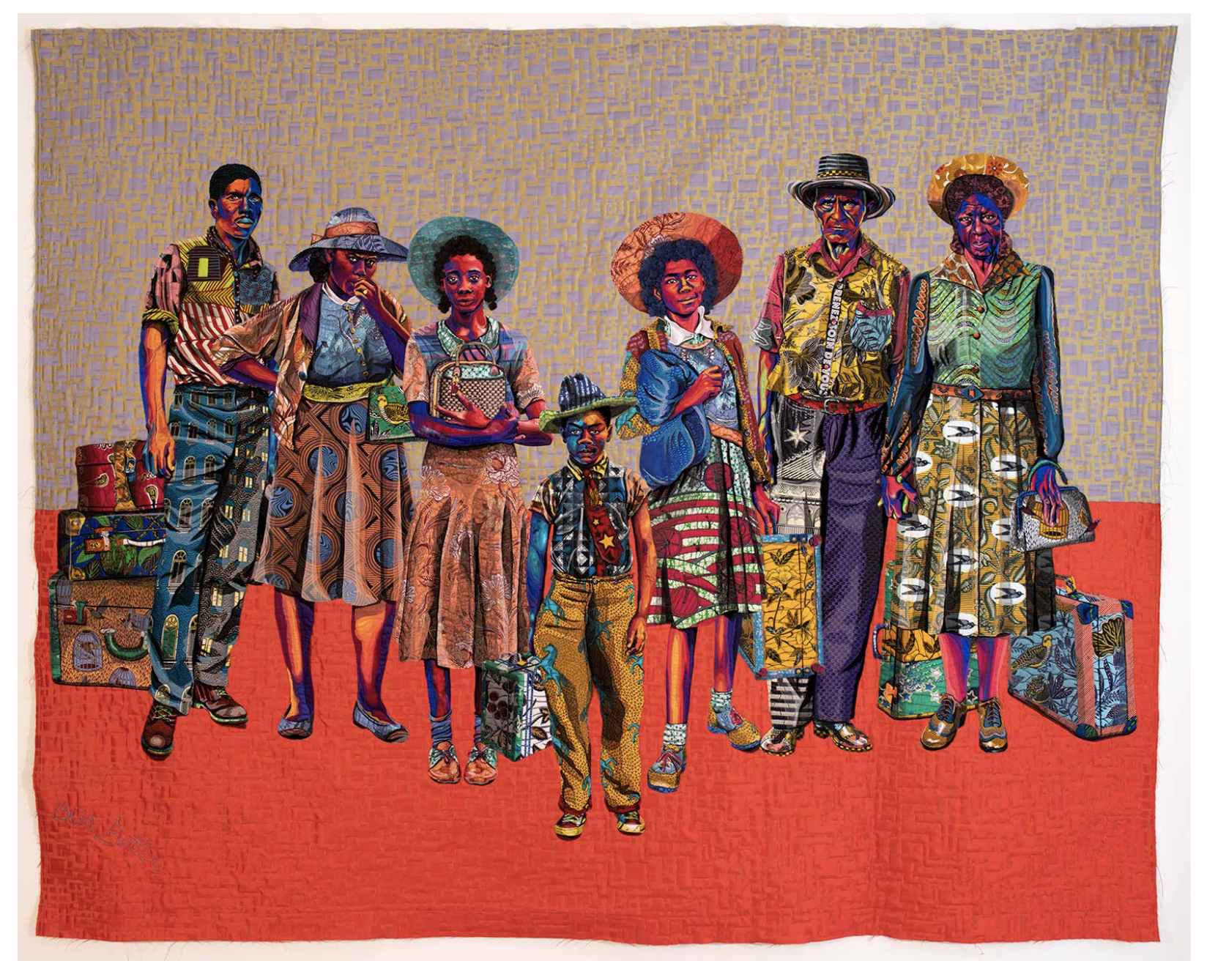Leftovers - 036
(Missing) Leftovers
For most of us, the last two days has meant the second best part of Thanksgiving: leftovers. A day off to spend with family is great. But who doesn't look forward to lunch plates piled high with stuffing and turkey sandwiches, casseroles for days and slices of reheated pie?
But this year I didn't get to have any. We left yesterday morning for a wedding (first flight in nearly 2 years). I had a smushed pb&j on a plane, thankyouverymuch. (So have a little extra stuffing and cranberry sauce for me, please.)
Leftovers are a concept I'm thinking about right now.
Reheat.
But, like, more than food.
Start.
Where is the evidence we have of something important happened to us?
Hummmmm
What remains to show that we were a part of something significant?
3...
2...
1...
What is our proof?
DING!
Ok, let's dig in.
The Weight We Carry
In one way or another, the last two years has made most of us think about the things we have lost in the pandemic. A way of life that is long gone.
Most people here are getting their booster vaccinations, masks are slowly disappearing, conversations with new neighbors are a bit longer and closer than they ever were. Like I said, I took my first flight in 2 years this week.
Things are changing.
We used to ask what we missed about our life BP– before panedmic.
But another question is surfacing: what will we miss about life during the pandemic?
Both questions reveal that we are all experiencing significant losses.
But we never took time to recover, never mourned our loss.
As a result, we're left with grief. And grief is heavy. It follows us everywhere and weighs us down. It's why we wake up tired from what should have been a full night's sleep. It's why we're achy and sore and still sensitive.
Many of us avoid grief, suppress it, or find it too painful to deal with the emotion of it. We rush to process it and want to move past it.
But I recently learned an alternative:
grief is unexpressed love.
Staying in grief is a way of staying close to the people and things we've lost. We feel that we didn't love enough, or there just wasn't enough time to.
Going into the pandemic and even coming out, our time was cut suddenly short.
I'm not an expert in grief, nor will I pretend to be. I'm not good at grieving, either.
But I'm open to the idea that grief is not something to escape or rush.
Grieving the loss of my former self. For a way of life, gone.
For all the people and things we have lost.
Grief is love, unexpressed.
Facing The Fire That Burned Us
This month, I learned that interviewing nannies is like a first date but with much scarier consequences.
In less than 30 minutes, we're sussing out whether we can trust this stranger with the most important things in our lives. After the third petty question about how she prefers to communicate, one thing became clear: I had issues leftover from previous nannies.
As if how she wants to discipline Golda, responds to feedback, or takes time off will magically heal the scars of the past. And that's what these are– scars. Visible indicators of an event that changed me.
We all have signs that we've been changed. Some are hidden, some are right out in the open. (I'm making mine even more visible by talking about them.) When we are in a new situation, they often reveal themselves if you know how to spot them.
Interviewing for a job, we suss out any toxic work culture we've experienced. A first date may expose how an ugly breakup now informs trusting issues. The childhood pressure from a parent may now get in the way of a healthy self-image. Sharing a secret might carry extra nerves after being burned by a disloyal friend.
A burn can remind us that we've learned not to touch the (metaphorical) stove again. But the reality is we actually do need to touch it again.
We have to face that thing that burned us, again and again.
We need to find ways to trust people, even after we're betrayed.
We need to navigate difficult relationships, even after the last one.
We need to confront our partners, even after we've said the wrong thing.
We hired a new nanny, and she started earlier this month. We love her and she loves the kids.
Tht's amazing to me. We're able to experience something that scars us, changes us and our world view. And then, with caution, continue to face it. And with some effort, overcome it.
We are more resilient than we might think.
We are capable of healing. All of us.
In fact, we're doing it right now.
Ghosts
Last weekend, I almost bought a 3-person in-home dry Swedish sauna. It would have been amazing. One day I'll have a sauna in our house...
Ok wait.
This story is not about a sauna, per se, but where I almost bought it. Lauren and I went to our first estate sale.
More than a dozen people were pushing through the hallways to peruse cabinets, take personal collectibles, and shop the closet of the family that once (and definitely recently) lived here.
It made me think a lot about my own mortality. My parents, too. What will be left when they're gone? I know my grandparents were not very clear about where their stuff would end up.
Sitting in my dining room cabinet is a crystal alcohol decanter. I got it four years ago when my grandmother died. It was for their 50th wedding anniversary. There's no engraving or anything, I just know it. It's one of hundreds of objects around my house that seems ordinary, but has a history.
To put in another way, every object we own is haunted.
It came from somewhere.
It has a story that gives it meaning, connects it to a different time, a person who no longer is here– basically, a ghost.
If horror movies have taught us anything, it's that we need to get rid of the spirits and free them from the things they haunt.
But we can't.
We simply can't just erase the past and absolve ourselves of our history.
Not by throwing away the old souvenirs.
Not by selling our childhood home.
Deleting old texts from our ex.
Or even demolishing every confederate statue.
We can't run away. The past has informed and molded the present. So instead of ridding ourselves of the past and unhaunting our objects, our job is to accept the past. The object holds the story, but our memory keeps it alive.
We have no choice but to exist among the ghosts of our past.
We can ignore it all we want, but eventually, we'll face the fact that we all live in a haunted house (whether it has a sauna or not).
And some day soon, we will be the ghosts.
Boo. Yeah.
––––––––––
I figure this weekend is the time for leftovers, and they belong in the refrigerator...so why not an email refrigerator? Thanks for taking the time this month to nosh on these leftovers, {{First name}}. It means so much when you share your reactions and reflections to what I write, and even more when you share this. I'm grateful for you, this month and always.
Jake
References
Phantoms (Miriam Webster Dictionary)
Adam Grant on Grief (Instagram)
Andrew Garfield on Grief (Late Show with Stephen Colbert)
What I Will Miss About the Pandemic (American Scholar)
You're Still Exhausted (Culture Study)
Psychology of Conspiracy Theories (Psych Central)
Every House is a Haunted House (Catapult)
PS. Sorry not sorry about the "Boo Yeah" dad joke. It was right there, I had to do it.
Missed an earlier delivery? Read all the rest here
No room in your inbox for more refrigerators? No hard feelings. Just click here to change your settings.



